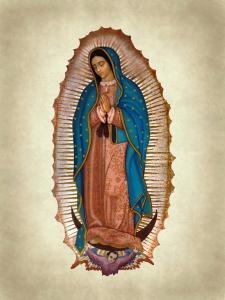
Jimmy Buffet is a wildly successful musician and entrepreneur. Through his music, he conjures up images of life as a perpetual tropical paradise, ‘watchin’ the sun bake,’ salty margarita in hand. Growing up in Mobile, Alabama, he graduated from my daughter’s high school, which was then McGill Institute, now known as McGill-Toolen Catholic High School, and briefly attended Auburn University. Living along the Gulf Coast near the sandy beaches inspired the singer and songwriter to create his unique brand, which exalts easy beachside living and Carribean culture.
No Heaven on Earth
Everyone I know dreams of paradise. It is tempting for all of us to desire to live the luxurious life of Margaritaville year round. As Christians, we are promised this paradise once we have finished the race, fought the good fight, and earned our place with the Elect in heaven. However, we can not get there by living life as a perpetual vacation, neglecting a disciplined spiritual life. Being a Christian is hard work and requires effort and perseverance.
A Culture of Leisure
My family has enjoyed vacationing in nearby Sandestin, Florida for many years, and I find it to be a place of peace and healing. There is something cathartic about lying on the sand, soaking up the warm sunshine and feeling the frothy waves between your toes. Vacation and relaxation are crucial to our mental, physical, and spiritual health and well being. Pope Saint John Paul II remarked in 1985, “Through the recreation and leisure made possible by travel, people are restored and renewed, body and spirit. They return home to family and work with a new perspective and enthusiasm for life.” Similarly, Pope Francis has said, “Together with a culture of work, there must be a culture of leisure as gratification. To put it another way: people who work must take the time to relax, to be with their families, to enjoy themselves, read, listen to music, play a sport.” We must take time to slow down, unwind, and recover from the challenges and stressors of life.
Balance is Key
Leisure is important; however, we must take care not to give in to laziness. As the saying goes, “everything in moderation” is the key. It is important not to live a life of extremes, but to balance duty and diligence with rest and relaxation. Just as we must battle against physical inactivity, resisting spiritual laziness, or sloth, is integral to serving God and being his disciples. “Whoever does not carry his own cross and come after me cannot be my disciple.” (Lk 14:27)
Rich in the Matters of God
In a quest for personal and financial success, some people are slaves to their work, but it can be equally damaging to go to the other extreme and fall into laxity or sloth. We are warned in the Parable of the Rich Fool not to succumb to this temptation:
“There was a rich man whose land produced a bountiful harvest. He asked himself, ‘What shall I do, for I do not have space to store my harvest? And he said, ‘This is what I shall do: I shall tear down my barns and build larger ones. There I shall store all my grain and other goods and I shall say to myself, “Now as for you, you have so many good things stored up for many years, rest, eat, drink, be merry! But God said to him, ‘You fool, this night your life will be demanded of you; and the things you have prepared, to whom will they belong? Thus will it be for the one who stores up treasure for himself but is not rich in what matters to God.” (Lk 12:16-21)
This World is Not Our Home
The rich fool became lazy and complacent because of his wealth and good fortune. He forgot that this world is not our home, but that we are only pilgrims on a journey to our eternal destination. He became lax in discipline, and was not prepared for the end of his life. This is a danger we all face when we are tempted to indulge in excessive leisure. Like the rich man, we can be tempted to “rest, eat, drink, and be merry” and lose our soul in the process.
Spiritual Sloth vs. Zeal
The Catechism of the Catholic Church defines the vice of lukewarmness as “hesitation or negligence in responding to divine love; it can imply refusal to give oneself over to the prompting of charity.” (CCC 2094) Carried to extremes, lukewarmness can become acedia or spiritual sloth, which, according to the Catechism, “goes so far as to refuse the joy that comes from God and to be repelled by divine goodness.” (CCC 2094) The opposing virtue is zeal, the Catholic definition of which is, “an impelling desire to advance the Kingdom of Christ, sanctify souls, and advance the glory of God by making him better known and loved, and thus more faithfully served.” (catholicculture.org) The nexxus between this dichotomy: balance rest and recreation with hard work, both in the earthly and spiritual realms. Put God and duty first in life, then you can enjoy the freedom to recreate in peace and ease of conscience. God wants us to be happy and enjoy this life; however, he doesn’t want us to lose our souls in the process.
(Image by pasja1000 from Pixabay)











